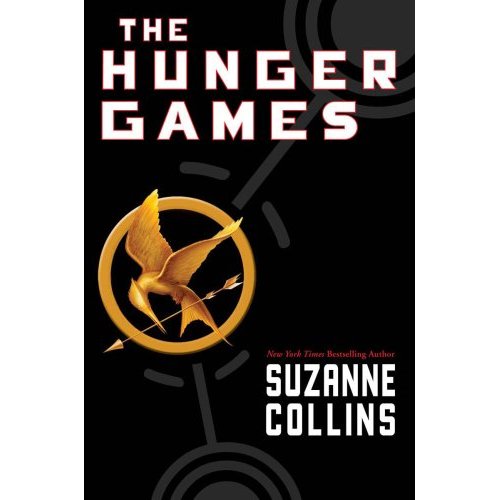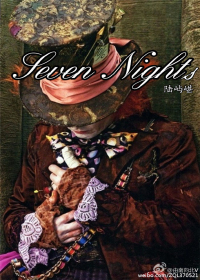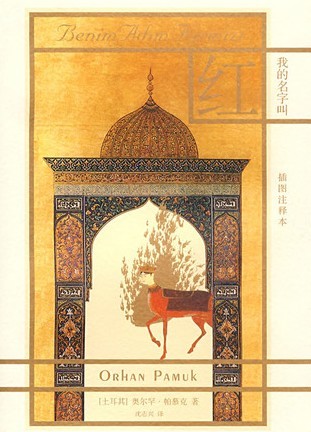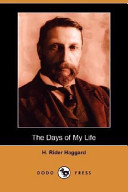my name is red-我的名字叫红-第53章
按键盘上方向键 ← 或 → 可快速上下翻页,按键盘上的 Enter 键可回到本书目录页,按键盘上方向键 ↑ 可回到本页顶部!
————未阅读完?加入书签已便下次继续阅读!
containing hundreds of books that the sheikh himself had illustrated; so many
books that he couldn’t cull his own from the others。 With great exaggeration;
as if I’d experienced it myself; I told how the painter; in profound sorrow and
regret; had burned to death in that terrible conflagration。
“Are you afraid; my child?” said Enishte Effendi passionately; “of the
paintings we’ve made?”
The room was black now; I couldn’t see for myself; but I sensed that he’d
said this with a smile。
“Our book is no longer a secret;” I answered。 “Perhaps this isn’t important。
But rumors are spreading。 They say we’ve underhandedly mitted
blasphemy。 They say that; here; we’ve made a book—not as Our Sultan had
missioned and hoped for—but one meant to entertain our own whims;
one that ridicules even Our Prophet and mimics infidel masters。 There are
those who believe it even depicts Satan as amiable。 They say we’ve mitted
an unforgivable sin by daring to draw; from the perspective of a mangy street
dog; a horsefly and a mosque as if they were the same size—with the excuse
that the mosque was in the background—thereby mocking the faithful who
attend prayers。 I cannot sleep for thinking about such things。”
“We made the illustrations together;” said Enishte Effendi。 “Could we have
even considered such ideas; let alone mitted such an offense?”
“Not at all;” I said expansively。 “But they’ve heard about it somehow。 They
say there’s one final painting in which; according to the gossip; there’s open
defiance of our religion and what we hold sacred。”
“You yourself have seen the final painting。”
“Nay; I made pictures of whatever you requested in various places on a
large sheet; which was to be a double…leaf illustration;” I said with a caution
and precision that I hoped would please Enishte Effendi。 “But I never saw the
pleted illustration。 If I had seen the entire painting; I’d have a clear
conscience about denying all this foul slander。”
174
“Why is it that you feel guilty?” he asked。 “What’s gnawing at your soul?
Who has caused you to doubt yourself?”
“…to worry that one has attacked what he knows to be sacred; after
spending months merrily illustrating a book…to suffer the torments of Hell
while living…if I could only see that last painting in its entirety。”
“Is this what troubles you?” he said。 “Is this why you’ve e?”
Suddenly panic seized me。 Could he be thinking something horrendous; like
I was the one who’d killed the ill…fated Elegant Effendi?
“Those who want Our Sultan dethroned and replaced by the prince;” I said;
“are furthering this insidious gossip; saying that He secretly supports the
book。”
“How many really believe that?” he asked wearily。 “Every cleric with any
ambition who’s met with some favor and whose head has swollen as a result
will preach that religion is being ignored and disrespected。 This is the most
reliable way to ensure one’s living。”
Did he suppose I’d e solely to inform him of a rumor?
“Poor old Elegant Effendi; God rest his soul;” I said; my voice quavering。
“Supposedly; we killed him because he saw the whole of the last painting and
was convinced that it reviled our faith。 A division head I know at the palace
workshop told me this。 You know how junior and senior apprentices are;
everyone gossips。”
Maintaining this line of reasoning and growing increasingly impassioned; I
e。 I didn’t know how much of what I said I myself
had indeed heard; how much I fabricated out of fear after doing away with
that wicked slanderer; or how much I improvised。 Having devoted much of the
conversation to flattery; I was anticipating that Enishte Effendi would show
me the two…page illustration and put me at ease。 Why didn’t he realize this
was the only way I might overe my fears about being mired in sin?
Intending to startle him; I defiantly asked; “Might one be capable of
making blasphemous art without being aware of it?”
In place of an answer; he gestured very delicately and elegantly with his
hand—as if to warn me there was a child sleeping in the room—and I fell
pletely silent。 “It has bee very dark;” he said; almost in a whisper;
“let’s light the candle。”
175
After lighting the candlestick from the hot coals of the brazier which heated
the room; I noticed in his face an expression of pride; one to which I was
unaccustomed; and this displeased me greatly。 Or was it an expression of pity?
Had he figured everything out? Was he thinking that I was some sort of a base
murderer or was he frightened by me? I remember how suddenly my thoughts
spiraled out of control and I was stupidly listening to what I thought as if
somebody else was thinking。 The carpet beneath me; for example: There was a
kind of wolflike design in one corner; but why hadn’t I noticed it before?
“The love all khans; shahs and sultans feel for paintings; illustrations and
fine books can be divided into three seasons;” said Enishte Effendi。 “At first
they are bold; eager and curious。 Rulers want paintings for the sake of respect;
to influence how others see them。 During this period; they educate
themselves。 During the second phase; they mission books to satisfy their
own tastes。 Because they’ve learned sincerely to enjoy paintings; they amass
prestige while at the same time amassing books; which; after their deaths;
ensure the persistence of their renown in this world。 However; in the autumn
of a sultan’s life; he no longer concerns himself with the persistence of his
worldly immortality。 By ”worldly immortality‘ I mean the desire to be
remembered by future generations; by our grandchildren。 Rulers who admire
miniatures and books have already acquired an immortality through the
manuscripts they’ve missioned from us—upon whose pages they’ve had
their names inserted; and; at times; their histories written。 Later; each of them
es to the conclusion that painting is an obstacle to securing a place in the
Otherworld; naturally something they all desire。 This is what bothers and
intimidates me the most。 Shah Tahmasp; who was himself a master
miniaturist and spent his youth in his own workshop; closed down his
magnificent atelier as his death approached; chased his divinely inspired
painters from Tabriz; destroyed the books he had produced and suffered
interminable crises of regret。 Why did they all believe that painting would bar
them from the gates of Heaven?“
“You know quite well why! Because they remembered Our Prophet’s
warning that on Judgment Day; Allah will punish painters most severely。”
“Not painters;” corrected Enishte Effendi。 “Those who make idols。 And this
not from the Koran but from Bukhari。”
“On Judgment Day; the idol makers will be asked to bring the images
they’ve created to life;” I said cautiously。 “Since they’ll be unable to do so their
lot will be to suffer the torments of Hell。 Let it not be forgotten that in the
Glorious Koran; ”creator‘ is one of the attributes of Allah。 It is Allah who is
176
creative; who brings that which is not into existence; who gives life to the
lifeless。 No one ought to pete with Him。 The greatest of sins is mitted
by painters who presume to do what He does; who claim to be as creative as
He。“
I made my statement firmly; as if I; too; were accusing him。 He fixed his
gaze into my eyes。
“Do you think this is what we’ve been doing?”
“Never;” I said with a smile。 “However; this is what Elegant Effendi; may he
rest in peace; began to assume when he saw the last painting。 He’d been saying
that your use of
![(伪犯罪心理同人)[伪犯罪心理]gimmick game人封面](http://www.8kbook.com/cover/2/2722.jpg)
![[秘密(世界上最神奇的潜能开发训练)][1].(美)华莱士·d.沃特斯&封面](http://www.8kbook.com/cover/noimg.jpg)



